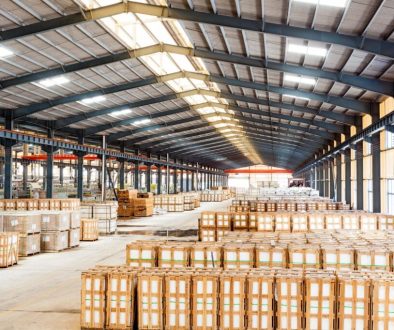Post-Pandemic Commercial Real Estate Trends in Florida
Post-Pandemic Commercial Real Estate Trends in Florida
The commercial real estate market in Florida is undergoing significant transformations in the wake of the COVID-19 pandemic. As businesses adapt to new norms, emerging trends are reshaping the landscape. This blog post will delve into the post-pandemic commercial real estate trends in Florida, including the rise of remote work, shifts in tenant expectations, the demand for flexible spaces, and the impact of e-commerce on retail properties. We’ll also explore how investors can navigate these changes to make informed decisions in a rapidly evolving market.
Introduction
The COVID-19 pandemic has had a profound impact on various sectors, and commercial real estate is no exception. In Florida, one of the most vibrant real estate markets in the United States, businesses are re-evaluating their space requirements while seeking to maintain operational efficiency. The pandemic has accelerated certain trends while also giving rise to new dynamics that are reshaping the commercial real estate landscape. Understanding these trends is crucial for investors, businesses, and brokers alike. In this article, we will explore key trends that define the post-pandemic commercial real estate environment in Florida and what they mean for the future of this sector.
The Rise of Remote Work and Its Impact on Office Spaces
- The shift to remote work has become one of the most significant trends in the post-pandemic commercial real estate landscape. Many companies, having experienced the feasibility of remote operations, are opting for hybrid work models. This has led to a decreased demand for traditional office spaces.
- According to a report by CBRE, Florida saw a 12% decrease in office space leasing activity during the pandemic. Companies are reassessing their space needs, leading to smaller office footprints or flexible leasing options.
- For example, tech companies in South Florida, such as Magic Leap, have begun to rethink their office strategies, moving towards collaborative spaces rather than expansive offices. This shift indicates a change in how office environments are designed and utilized.
- Landlords and developers are responding to these changes by creating more flexible office spaces that cater to hybrid work environments, including coworking spaces and adaptable office layouts.
Shifts in Tenant Expectations
- In a post-pandemic world, tenant expectations have evolved significantly. Businesses are now prioritizing health and safety, leading to increased demand for properties that offer features like enhanced ventilation systems, touchless entry, and outdoor spaces.
- According to a survey by JLL, 70% of tenants in Florida reported that they would consider moving to a space that prioritized safety and wellness features.
- Additionally, access to amenities such as fitness centers, green spaces, and proximity to public transportation has become a critical factor in property selection. Developers are now focusing on creating environments that promote health, well-being, and work-life balance.
- For instance, mixed-use developments that combine residential, retail, and office spaces are becoming increasingly popular as they provide tenants with convenient access to essential services and recreational facilities.
The Demand for Flexible and Multi-Use Spaces
- The concept of flexibility in commercial real estate has gained traction as businesses seek spaces that can adapt to changing needs. This includes the increasing popularity of multi-use properties that serve various purposes.
- As e-commerce continues to thrive, there is a growing demand for industrial spaces that can accommodate last-mile delivery services. Florida’s strategic location with access to major transportation networks makes it an ideal hub for logistics and distribution.
- The rise of hybrid events and gatherings has also led to increased interest in venues that can host both small and large-scale functions, further emphasizing the need for adaptable spaces.
- Investors are capitalizing on this trend by acquiring properties that offer flexibility, such as warehouses that can be transformed into event spaces or retail stores that can accommodate both shopping and experiential activities.
Retail Real Estate: Adapting to E-Commerce Growth
- The pandemic has accelerated the e-commerce trend, forcing traditional retailers to reevaluate their strategies. As consumers increasingly turn to online shopping, brick-and-mortar stores must adapt or face closure.
- In Florida, retail properties are undergoing transformations, with many businesses focusing on omnichannel strategies that integrate both online and offline experiences. This has led to a demand for retail spaces designed for pickups, returns, and customer engagement rather than purely in-store shopping.
- Notably, Florida’s retail market is responding with innovative concepts such as showrooming and pop-up shops that cater to changing consumer behaviors. Developers are now prioritizing locations that offer high visibility and accessibility to drive foot traffic.
- An example is the development of mixed-use retail centers that incorporate dining, entertainment, and shopping experiences, attracting customers looking for a comprehensive outing rather than just shopping.
Investment Opportunities in a Changing Landscape
- Despite the challenges posed by the pandemic, the Florida commercial real estate market presents numerous investment opportunities. Savvy investors are recognizing the potential of properties that align with emerging trends.
- The demand for flexible office spaces and multi-use properties is creating opportunities for real estate developers to capitalize on changing needs. Investors can explore properties that are adaptable and can cater to various tenant requirements.
- Additionally, the industrial sector is witnessing significant growth due to the rise of e-commerce. Warehouses and distribution centers are in high demand, presenting opportunities for investment in logistics and supply chain infrastructure.
- For those looking to invest, understanding market trends and tenant preferences is essential. Engaging with experienced brokers and conducting thorough market research can provide valuable insights into identifying high-potential properties.
Technology’s Role in Shaping the Future
- Technology continues to play a pivotal role in reshaping commercial real estate. The adoption of proptech solutions, such as virtual tours and augmented reality, is enhancing the property viewing experience for potential buyers and tenants.
- Additionally, data analytics and artificial intelligence are being utilized to assess market trends and property values, providing investors with critical insights that drive decision-making.
- Smart building technologies are also gaining traction, with many developers incorporating IoT devices that enhance efficiency and sustainability. These innovations not only attract tenants but also contribute to long-term cost savings for property owners.
- As the industry evolves, embracing technology will be crucial for staying competitive and meeting the needs of modern tenants.
Conclusion: Embracing Change in Florida’s Commercial Real Estate
In conclusion, the post-pandemic landscape of commercial real estate in Florida is marked by significant changes driven by evolving tenant expectations, the rise of remote work, and the growth of e-commerce. Businesses and investors must adapt to these shifts by embracing flexibility, exploring innovative property solutions, and leveraging technology to stay ahead of the curve.
As Florida continues to recover and evolve, the commercial real estate market will remain dynamic, offering opportunities for those willing to embrace change. Whether you are a business owner seeking the perfect space or an investor looking to capitalize on emerging trends, understanding the current landscape is key to navigating this exciting new era in commercial real estate.
For more insights on how to navigate the Florida commercial real estate market, or to explore available properties, contact us today at Tower Business Brokers, Inc. and let us help you make informed decisions in this changing environment.



